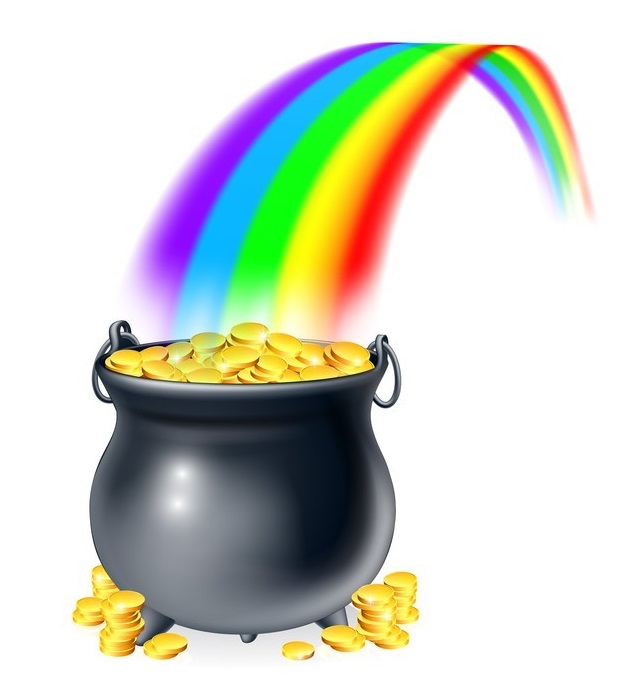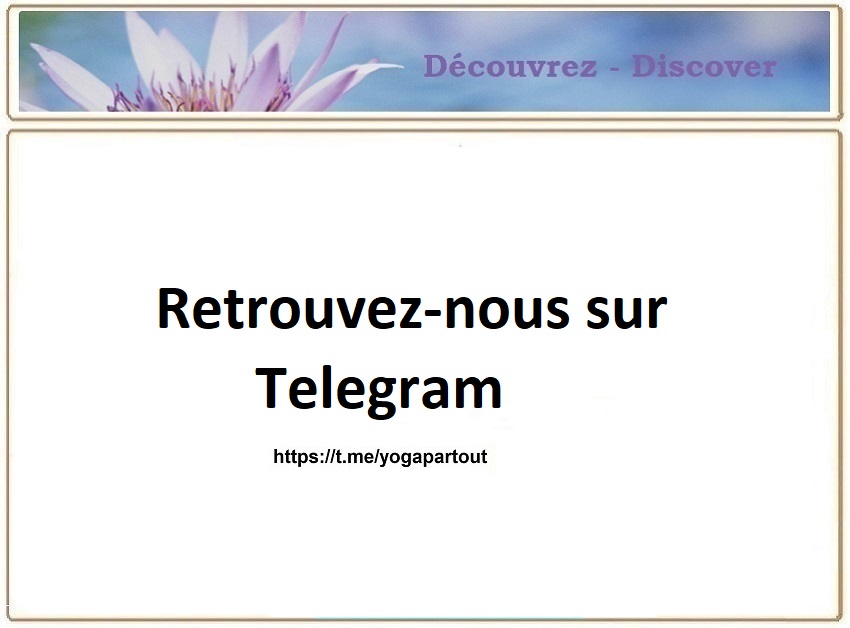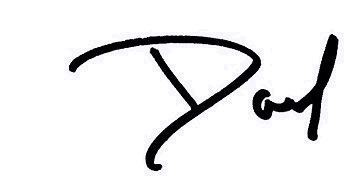Ma réflexion au sujet des NFT - My thoughts about NFTs (text in english bellow)
Cette courte introduction en français mène vers un texte plus étoffé rédigé en anglais plus bas. Pourquoi rédiger ce texte en anglais? Simple. Les statistiques au sujet des lectrices et lecteurs sur YogaPartout montre que plus de la moitié des personnes inscrites sur ce site sont parfaitement bilingues.
Première question
Que se passe t'il si vous achetez une planche NFT fabriqué par YogaPartout?
Si vous achetez une planche NFT de YogaPartout, dans un premier temps, vous pouvez la revendre. Parce-qu'elle devient vôtre, vous pouvez soit conserver l'objet (cet objet vous appartient), soit remettre l'oeuvre en circulation libre.
En effet, si vous achetez un NFT fabriqué par YogaPartout, vous encouragez cette communauté et l'auteur de cette oeuvre puisque des redevances (20%) sont versés à l'auteur ou aux auteurs selon le cas. A toutes les fois qu'il y a une transaction de ce ou ces NFT, toutes les personnes qui ont collaborés créativement ou financièrement touchent une redevance. Vous pouvez suivre l'évolution du combien l'objet a été payé et qui est le propriétaire final sur la Blockchain. Lisez cet article qui a paru sur Radio-Canada qui explique le concept.
Que fait YogaPartout avec ces planches
Nous nous servons de ces ventes comme méthode de sociofinacement
Ce que nous faisons, ici même via ce site collaboratif? Nous assistons nos membres à comprendre et utiliser judicieusement cette nouvelle technologie.
- Les auteurs sont souverains
- Les auteurs sont propriétaires, finalement ils peuvent prouver que ce sont eux les vrais auteurs
- Les droits d'auteurs sont respectés, protégés
Nous observons en ce moment une ruée d'intérêt à créer ce genre d’œuvre artistique. Le même phénomène est observé dans le domaine des jeux en ligne. La recrudescence de créations d'objets dit "'Jeton non fongible (Non-fungible token en anglais)'' est sans équivoque le début d'un temps nouveau. Voici ce que Wikipedia nous dit au sujet de ces objets artistiques et l'énoncé de Daniel, le co-fondateur de ce site.
Un jeton non fongible, est un type spécial de jeton cryptographique qui représente quelque chose d'unique; les jetons non fongibles ne sont donc pas interchangeables. Cela contraste avec les crypto-monnaies comme le bitcoin et de nombreux utility token qui sont fongibles par nature.
C'est donc avec enthousiasme et reconnaissance que nous remercions Baudouin localisé en Belgique pour ses dons visuels, ses textes et sa patience à aider YogaPartout à devenir ce que YogaPartout est aujourd'hui. Il a aussi permis et encouragé la publication du magazine Satothi.Yoga.
Cette première collection sert aussi a inspirer d'autres artistes à protéger leurs actifs puisque les NFT sont nés, leur engouement grandit avec le temps, ils sont là pour rester
-Daniel
Merci.
Suite de cet article intitulé "Ma réflexion au sujet des NFT"... en anglais.
Here comes the English explanation about this NFT beginning here on YogaPartout.
My NFT Story
I started to be interested in the Blockchain economy via the Bitcoin Embassy in Montreal, Canada. Always so attracted to web innovation. The presentation sold me the idea about the Blockchain, not the Bitcoin itself. They explained how this ecosystem was there to stay, that it would replace our conventional monetary system. The presenters talked about Satoshi, a man or pseudo group that produced a use case explaining the Blockchain and a currency named Bitcoin, an open algorithm that reproduced itself like a miner who works to discover a nugget of Gold. They said that anyone who wished to use their algorithm could. The internet crypto currency developers (I’m in favour of thinking that Satoshi is not one person) who wanted to create a currency that banks could not control was available at the price of 300$ Canadian (back in 2014). They said that this currency was transparent, meaning that the authors of an NFT object can be found, there is a trace of the transaction over the internet. The rest is history.
While following the evolution of this ecosystem (I’m lacking vocabulary here, ecosystem may not be a good descriptive), I was developing my yoga web site (tks to my encounter with Marc Laporte, a project admin for Tiki.org and got to specialize in mail order distribution of a magazine I imported from France. I became the North American distributor of that specialized yoga magazine namely Le Journal du Yoga. The advantage to developing this niche where I was mailing every month that yoga magazine was that I could, at the same time, communicate my yogapartout community services. I was creating, doing podcasts interviews, all of what I learned and applied via the Tiki Community first as I got an instance of this Open Source Software named tiki.org installed with my domain name. The choice for using the Tiki Wiki Groupware Content System (Tiki CMS) was easy to make. It took me a while to get it installed by one volunteer (tks to Rodrigo ) yet, the choice of this Open Source Content Management System was inspired by one of my idol in internet community, Mr. Don Tapscott author, today, of 16 books and currently Co-Founder & Executive Chairman of the Blockchain Research Institute.
Yet, a lot of uncertainties prevailed. Since 2008, I produced numerous social media exercises. Mostly, I specialised in doing podcasts and the interest back then was not what it is today.
It was and I still see the interest in yoga going down in popularity. In fact, I am frustrated to see that the yoga interviews I made all around the world since 2008 are under valued. I mean here the “perceived value”, the interest and the revenues are important values to be considered. And that value is underestimated. The yoga community has not seen YogaPartout the way I thought they would; a repository of the yoga knowledge. If at least it was profitable, considered as a rare and precious knowledge base, transferable, exchangeable. I thought and still believe the creative content created in co-ownership was going to be recognised… and it isn’t. My thought was that the content I created could be purchased, re-sold, that it can change hands as listeners would share a piece of wisdom, like a “thumbs up” we see on other social media ecosystems. In short, I wanted to believe the interviews I made, the ownership could be shared, sold over and over again. I said to my self, it would create happiness. No, the current business model of ‘build it and they will come’ doesn’t work… until I discovered Non Fungible Tokens one can produce via the Ethereum ecosystem and also available on the EOS Block One network.
NFT, IMOO could be located into the Tiki Infrastructure
Like this draft here bellow
Then birth of the the Non fungible Tokens (NFT) was in 2015 on the Ethereum blockchain ecosystem. More recently it made the news all over the world when a man named Beeple sold via the auction house Cristie’s one NFT at 69.3 million US dollars. Announcements all over the world took lots of space. That was the sign I was waiting for. The crypto blockchain community had developed a simplified system, available to anyone, without having to understand how and what made these NFT valuable. For free or a fraction of few dollars, one can create a digital art piece and sell it. Eureka. finally, the world recognized for the first time in history the creativity artists put into their work. Artists can be paid for their true value. Parallelly, my studies in the yoga field and the interviews I performed (well over one hundred podcast recordings counted in 2019) made me understand that yoga is an art. My thinking process saw similarities between yoga perceived as an art and the blockchain via the NFT movement as an art too.
Some yoga teachers I met would argue that yoga is a science, yet not enough scientific studies have been made to this day to prove the benefits of this ancient practice... it is still, and it remains an art. In addition to this observation, my plan to gather French speaking yoga teachers around one platform, the Tiki CMS system kept failing repeatedly, it costed me less than if I had chosen a proprietary web solution, yet it still costed me a lot to keep the solution up to date with technology advancement.
I was and am really fed up to miss target. Failing is very frustrating.
I got resilient I suppose, or I am dummy, and I do not read the signs correctly.
Did I adopt this Tiki technology by mistake, after ten years of trials and failures?
I knew, back in 2021-2022 that I had to shift dramatically, change my business model if I wanted to succeed to create a community that would be self sufficient, generating revenue from the content created into that community and ensure its longevity.
So I launched a Crowdfunding campaign using the block chain for investors to risk some of their money and help the YogaPartout community diversify in other languages shifting via the new identity named Satoshi Yoga
Today
Since 2008, I have been resisting to sell products online, offer services and ask for direct payments.
I still do not offer online yoga courses and will not. The live human one to one transmission process can not, yet anyway, be transmitted virtually. I got Stripe installed, I’m using PayPal, SquareUp and local banking services as options for my clients, friends, and partners to transfer me their payments. Most of my clients are donating small additional amounts along their subscription’s annual fees for the magazine I distribute in North America as they recognize the value of being referenced via the SEO services, I offer them, that is the most I get to ask and receive positive responses. Yet, this is not enough to be able to create a community that adopts the wiki way of doing things, specially in the yoga world. Recently, I acquired a new domain name: Satoshi.Yoga and announced my entry in the NFT scene. One yoga professor, Baudouin Legrand, also a jurist, located in Belgium accepted that we use his visuals to create a series of instructional/creative yoga postures to entice the members in the community to embark in the NFT direction. After hours of work with this teacher and the help of volunteer Étiennette Gagnon, we managed to launch a series of NFT demo pics. Yet, I do say that this is not good enough. To be in the “connected blockchain world” one need to have a real node, not a fake one.
- To learn about the blockchain and it’s potential use, one need to be learning.
- I learned that there are different ecosystems.
- The Bitcoin space consumes a lot of energy.
- It is said it consumes 80 terawatt-hours of electricity annually. For a year, the Boston University calculated it takes the equivalent of 385 ships of energy used by mining bitcoin of AA alkaline long-life batteries. This means: 84,594,077,568 kWh ( https://qz.com/2023032/how-much-energy-does-bitcoin-use )
What is an NFT
Often described as a way to tracking ownership of a unique digital asset, an NFT is ultimately just a bunch of text: a unique string of characters called a token when grouped and tracked on a blockchain, usally the Ethereum blockhain.
The main complaint about the Blockchain follows NFT’s even if these tokens are not in the same ecosystem is that data mining generates a sizable portion of energy expenditure in the NFT industry. Recently, Elon Musk explained Bitcoin's plans for using renewable energy. Musk presented a goal of mining with 50% renewable energy. NFTs can also utilize clean power, significantly reducing their environmental impact.
- Source: UK energy hub
Why I choose the https://EOS.IO eco-system
EOS.IO was introduced to me by a crypto fanatic who sold me the idea that Block One offes the most likely best future for our planet. Here are the characteristics I found
- It is fast
- Block.One launched a community named Voice so that they stay in the social media game and at the same time offer to produce NFT’s for free.
- Their mark up is 20% which is a steep price, yet it is free to use, free to produce NFTs and unlimited to its use as compared to other NFT plateform hosting EOS.
What about the operating system sustaining this NFT: EOS.IO
EOS is a development platform for decentralized applications (dApps), which looks close to an operating system, as it emulates a real computer: hardware (CPU + GPU) for processing, memory (local/ RAM/ HDD) for storage and software, distributed equally among EOS holders.
- Scalable
- User friendly
- Virtually Free
- Their community engagement is important
- They are marketing oriented
All their partners are Certified Carbon Neutral
- They to organize events in many cities arourd the world
At the time of publishing this article (dec 2021), I read that they have a 700 thousand member registered, they produced 46 million blocks and their OS does 3,900 operations per second. Finally, they have four sister’s chains: Telos, Worlbli, Bos and MeetOne.
The EOS community elect a board of directors by referendum. They are involved in the the Eden EOS organisation. Eden is mostly a watch dog sort of speaking. They do look after marketing, making sure the players in the EOS ecosystem are fairly treated, you and I can run for administration if we want to.
Conclusion about my pick of NFT development plateform
In summary because the subject is so vast, here is a url found on Medium that explains best the EOS solution why I love the EOS solutions.
Back to basics: WHY did I do with all this knowledge
As mentioned, a little bit above this desiderata, not only I educated myself about NFTs, the blockchain and its future potential, I also got my own token created. In fact, my token is a Foobar that is not connected for real into the Blockchain.
To test the interest in my yoga community, I helped yoga teacher Baudouin Legrand to post 18 yoga postures which, with his permission are meant to be going for sale on the Blockchain by lieu of NFT. Here are the ursls of this NFT prod exercise. It is placed on the Voice.com plateform as explained above, my pick in the crowd of NFT communities.
My Voice.com space
- https://www.voice.com/dan1am
- The first NFT I sold for $4.50 US (you can observe its evolution).
- It got purchased by someone in the USA named Martin, a photographer. YogaPartout dedicated a thank you page for him
Let's be sovereign
After this exercise of creating my own token, sort of speaking, I got the token to be valued at the price tag of one million units. The [https://yogapartout.com/Yoga ToshiYog Token page.
Here is the info about my Token
All the details about my token on the block chain can be found via my Yoga ToshiYog Token page. Specifically, you can see the fluctuation of this token at this location using this tool, the Bitcoin Cash Simple Ledger
aef30d3ded8ebdf0537ff2a2bf991860fa35cc90f2c7ce459009e198ca481ff4
How to use this tool
Type in their search engine the above hash sigle (TSY)
What does my token look like
I knew you would ask, here it is. I looked for it and at the time of publishing, I could not find it standing alone. However, bellow this article, you will see where I'm hanging on.
Where can you find me
These days, I'm hanging around these communities. You'll this video on YouTuberecognize, in one of these visuals, my Toshi Yog Token representation
What can tiki.org need to be interested in NFTs?
I believe the tiki as a whole can benefit by building a tool for artists to be able to create a collection of objects, thousands of NFTs without coding Knowledge.
That can thereafter be put out there to show what Tiki can do for artists. I beleive there should be a directory integrated in the Tiki.org infrastructure so that new interested users can see themselves fit into the community.
I found this YouTube that shows what can be done in this direction. Se this reference: "How To Create An entire NFT Collection (10,000+) In Under 1 Hour Without Coding Knowledge" via this video on YouTube.


